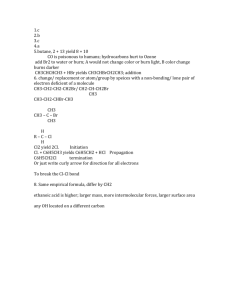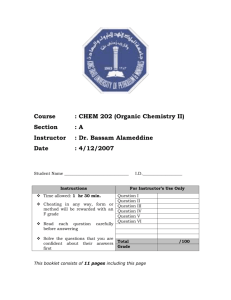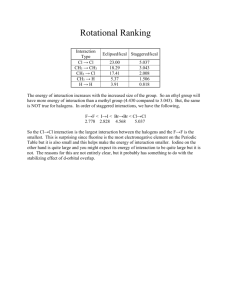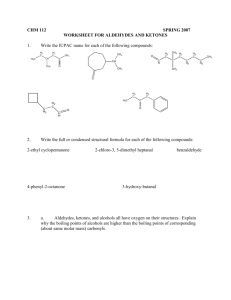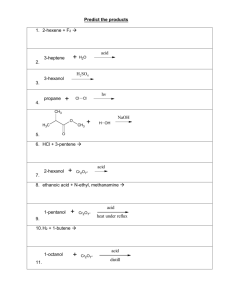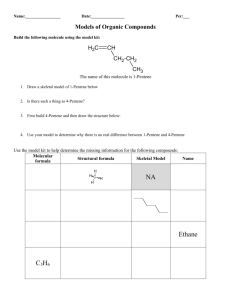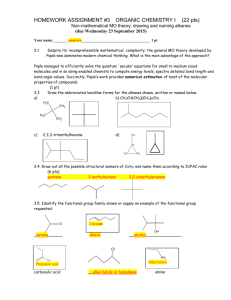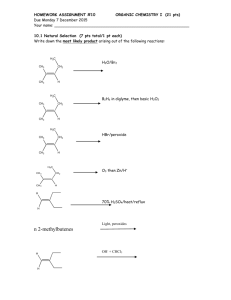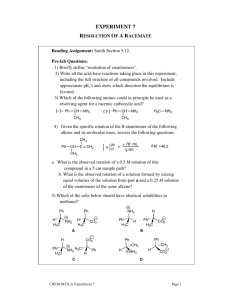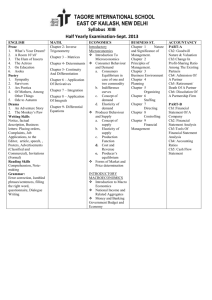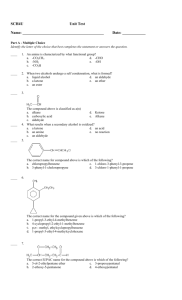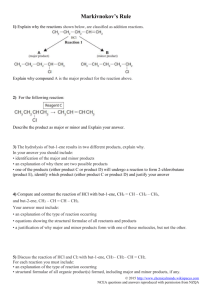exam one key
advertisement
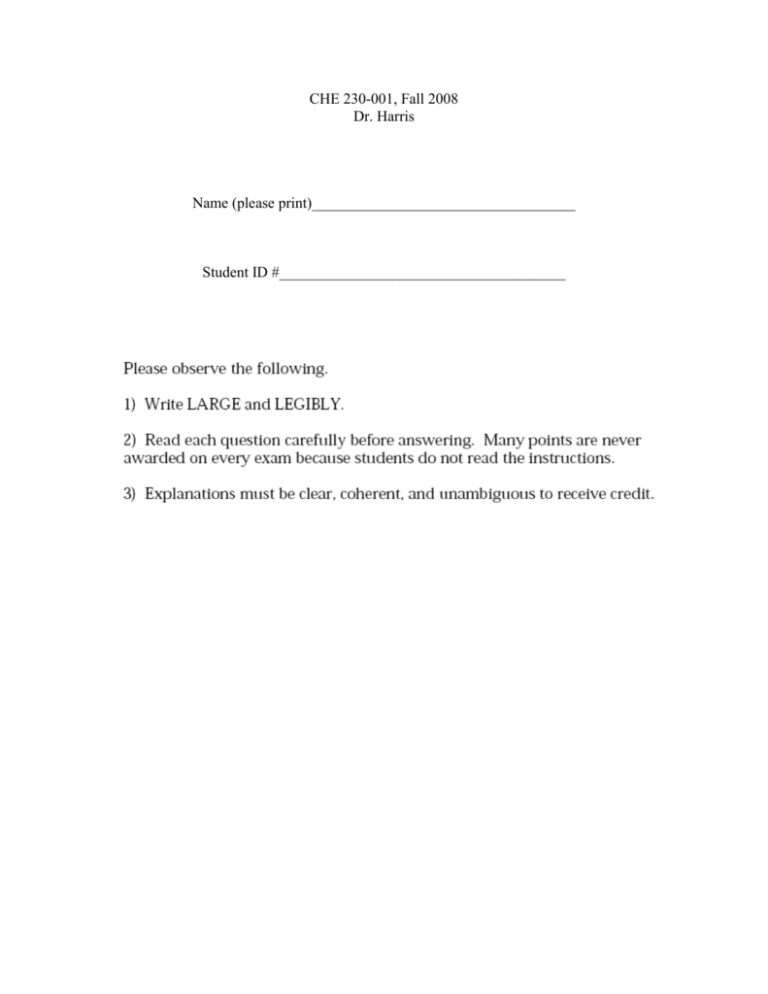
CHE 230-001, Fall 2008 Dr. Harris Name (please print)___________________________________ Student ID #______________________________________ Exam 1 – (5 points each) 1) Draw the Lewis structure of (CH3)2CHCH2CH(CH3)C(CH3)3. CH3 H3C CH H2 C H3C H C C CH3 CH3 CH3 2) What is the formal charge on both the N and O? H FC(O) = 6 - (6 + 1/2(2)) = -1 C N O FC(N) = 5 - (0 + 1/2(8)) = +1 3) Draw all resonance structures. O O O O 4) List the orbitals that make up each of the indicated bonds. (For the multiple bonds describe the orbitals that make up both the sigma and pi bonds) sp2 - sp3 sp - sp, p-p, p-p 5) Which of the following compounds has a net dipole? Draw the contributing dipoles of the compound you choose. (CH3)2CO 6) Draw the product of the following reaction. (Label the Lewis Acid and Base) + BASE B B ACID 7) Which molecule is he conjugate acid? H3O+(aq) 8) Which is the strongest acid? Why? O O OH OH S OH O Due to resonance stabilization SH 9) What intermolecular forces does the following molecule exhibit? O O Van der Waals and dipole-dipole 10) Which of the following has the highest boiling point and why? largest surface area 11) Label the reactants as either an electrophile or nucleophile. Then if the reaction occurs, draw the products. + O nucleophile No reaction nucleophile 12) Name the following compound. Cl 1-tert-butyl-2-chloro-4isopropylcycloheptane 13) Which of the following has the highest melting point? Why? NH2 CH3 Cl due to stronger intermolecular forces, hydrogen bonding 14) Draw the most stable form of trans-1-bromo-4-ethylcyclohexane. H Br H 15) Using Newman projections, draw the most and least stable conformations of pentane along the indicated bond. (Label them accordingly) H CH2CH3 H H H3C CH2CH3H H H H CH3 anti-most H H eclipsed-least 16) Are the following constitutional isomers or stereoisomers? H H H Cl Cl H H3C CH3 17) Is the cis or trans isomer of 1-ehyl-4-isopropylcyclohexane lower in energy? (Draw the chair conformation of each and use them to explain your answer) H H H H trans is lower in energy b/c both substituents are in the more stable equatorial positions. 18) Name the following compound. H H H3C cis-1-isopropyl-3-methylcyclohexane 19) Which of the following is soluble in both organic solvents and water? Why? O H3C CH2 H2C CH2 H3C O NaCl (CH3)2CO is soluble in organic solvents b/c it's an organic compound and soluble in water b/c it has 5 or less carbons to each oxygen 20) Name the following compound. 5-cyclopentyl-2,3-dimethylheptane Final Grade = _____/100 = ______
